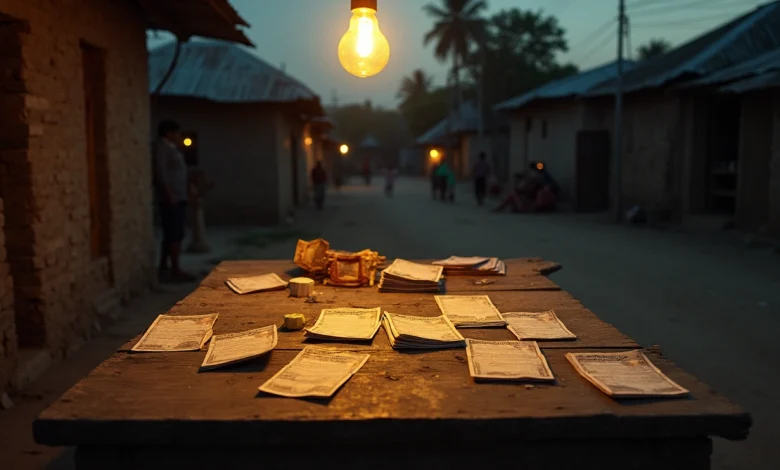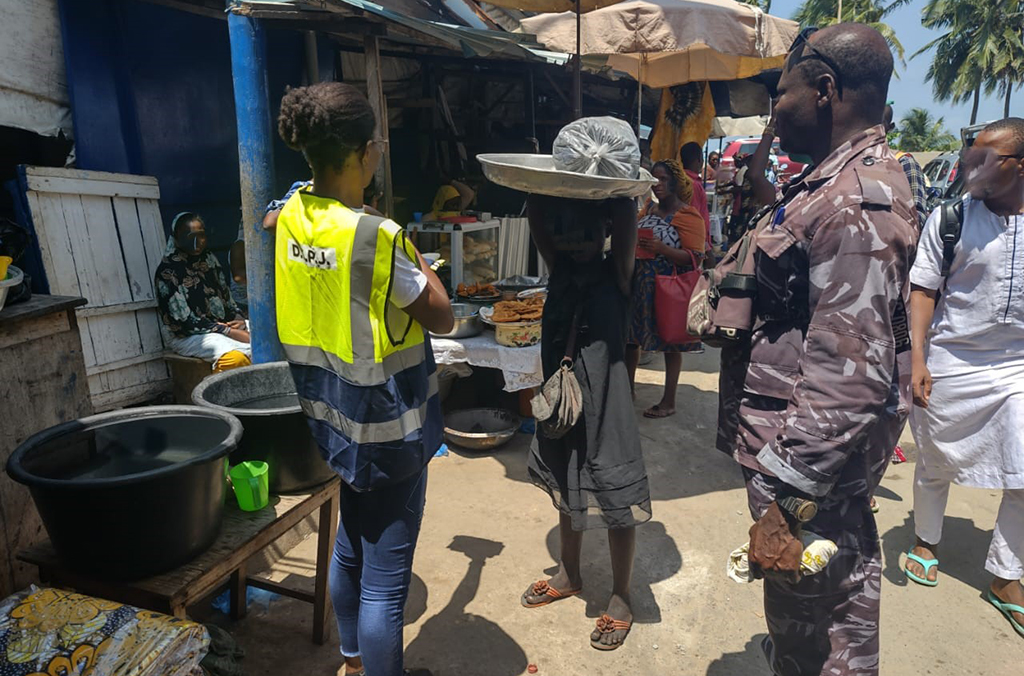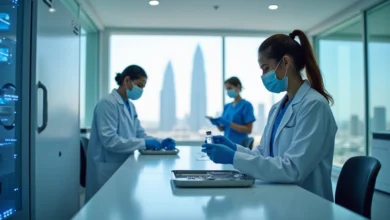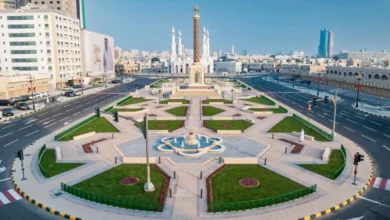
Exposed: Kidney Trade Network Preys on Poor at India-Bangladesh Border
The India-Bangladesh border has become a hotspot for illegal kidney trade. One in 35 adults in this region has sold a kidney. Telangana’s Criminal Investigation Department caught several suspects linked to an interstate kidney trafficking network. The department had already arrested 16 people for their involvement. This underground organ trade runs on exploitation. Traffickers make huge commissions of about ₹10 lakh per transplant but give donors only ₹4 to ₹5 lakh.
People now call this border region the “Village of one kidney.” Organ traffickers here systematically target poor donors and take their vital organs. Research shows that 83 percent of people sold their kidneys because they lived in extreme poverty. The dark reality of this illegal market shows in its economics. Recipients pay between $22,000 and $26,000 for a kidney. Donors get a mere $2,500 to $4,000. This exploitation happens amid severe organ shortages. India performed just 13,600 kidney transplants in 2023, while about 200,000 patients develop end-stage kidney disease each year.
Brokers Lure Desperate Donors with False Promises
Image Source: Al Jazeera
Illegal kidney trade brokers run a complex network that preys on vulnerable people in Bangladesh’s poorest areas. Their victims are easy targets because of their desperation, debt, and dreams of a better life. These traffickers promise financial freedom but leave their victims with lasting physical damage.
Victims targeted in Kalai Upazila and other poor regions
Kalai Upazila in Joypurhat district has become a well-known hub for kidney trafficking. Some villages like Baiguni, with less than 6,000 residents, are now known as the “village of one kidney”. A newer study, published in 2023 by researchers shows that one in 35 adults in this area has sold a kidney.
The data shows a clear pattern among kidney sellers: more than 70% are men who average 33 years old. Most male sellers work as farmers (56%), while female sellers are mostly housewives (78%). Money problems drive this desperate trade, with 83% of sellers saying financial hardship was their main reason. Other reasons include paying back loans (4-5%), drug addiction (2-3%), and gambling (2%).
Local leaders in the Matrai and Udaypur unions of Joypurhat district say more than 500 people have sold their kidneys in the last decade. This means at least 1% of the area’s 49,510 villagers have been part of this illegal trade.
Promises of jobs and high payments used as bait
Traffickers use several tricks to find potential donors:
- False job offers abroad with attractive salaries
- Promises of big payments (often 5-7 lakh taka or $15,000-21,000)
- Newspaper ads looking for “noble” kidney donors
- Social media recruitment through fake transplant support groups
- Emotional manipulation about helping desperate patients
Safiruddin from Baiguni village represents a typical victim. He was a struggling family man when brokers approached him and pitched kidney selling as a chance rather than a risk. Though skeptical at first, his money problems pushed him to accept.
Brokers often use misleading medical information to calm fears. They tell potential donors that “one kidney sleeps while the other works,” suggesting humans don’t need both kidneys. They also promise victims that doctors can “turn on the sleeping kidney” and take out the old one without causing harm.
The truth is nowhere near what they promise. Donors are told they’ll get large sums—usually 5-10 lakh taka (about $6,000-12,000)—but they end up getting much less. Josna Begum, a 45-year-old widow from Binai village, was promised 7 lakh taka but got only 3 lakh after her surgery.
Medical visas and travel arranged by traffickers
After donors agree, traffickers take care of all travel plans across borders. This includes getting medical visas, booking flights, and preparing both real and fake documents. Many victims travel with their original Bangladeshi passports and medical visas that traffickers get specifically for this purpose.
Sometimes, organ brokers give fake passports and take them back after victims cross into India. This traps victims and makes them rely on traffickers to get home. Victims’ original identity documents are often changed or replaced with fakes that show false family ties to organ recipients.
Three Bangladeshi men who fell victim to this scheme in Delhi show how this works. Traffickers lured them with job promises and arranged their medical visas to India. After they arrived, doctors ran many tests—one victim had 49 blood samples taken over six days—before operating on them without proper consent.
Traffickers Forge Identities to Bypass Indian Laws
Image Source: NDTV
Indian law only allows organ donations between close relatives, which creates a major legal obstacle for kidney traffickers. These criminals have developed a sophisticated system to bypass regulations through document manipulation and deception.
Fake family ties created using forged documents
The illegal trade’s foundation lies in creating fictional relationships between donors and recipients. The Transplantation of Human Organs Act 1994 permits donations between relatives but bans monetary benefits to donors. Traffickers exploit legal loopholes by creating false family trees that show donors as distant relatives.
Case records show 15 different types of made-up family connections. Half of all cases present donors as the recipient’s sister’s son. Other common false relationships include wife’s brother (12%), mother’s sister’s son (9%), husband’s sister’s son (6%), and father’s sister’s son (5%). The authorities examined 61 cases and found that all but one transplant involved fake relatives.
The National Investigation Agency (NIA) found that international crime rings prepare forged Indian identity documents specifically to traffic Bangladeshi nationals and Rohingyas. These papers create an illusion of legal transplants between relatives when no actual relationship exists.
Hospitals misled with notary certificates and fake IDs
Hospital authorization committees should act as gatekeepers but often can’t detect sophisticated forgeries. Traffickers use various fake documents to deceive these committees:
- Notary certificates falsely establishing familial relationships
- Forged national IDs supporting fabricated family connections
- Counterfeit birth registration certificates
- Falsified marriage certificates with English translations
- Fabricated death certificates of fictional relatives
- Medical reports from non-existent diagnostic facilities
One police investigation seized 20 official-looking seals, a pen drive with 991 Word files containing digital signatures, bank account information, police verification reports, and medical documents from “Raju Diagnostic and Laboratory”—which turned out to be completely fake.
The forgery includes official government stamps too. Police found fake seals that looked like those from the Bangladesh High Commission, used to authenticate documents and photos of donors and recipients. In another case, traffickers stored official-looking stickers for document fabrication in a plastic box labeled “Oasis Arabia Premium Dates”.
Donors unaware of recipients or legal implications
Donors don’t know who receives their kidneys, which adds another layer to these illegal transactions. Josna, a kidney donor from Bangladesh, said: “I don’t know who received my kidney”. Safiruddin, another donor, had no information about his kidney’s recipient.
These donors remain unaware of the serious legal violations happening through forged documents. Police in Amritsar, Punjab, called one such operation “the mother of all scandals in human organ trafficking in India”.
Hospitals sometimes enable these crimes unknowingly. Delhi Deputy Commissioner of Police Amit Goel noted: “In the cases I investigated, I found that the authorization board approved those cases because they couldn’t identify the fake documents”. He added that hospitals might overlook issues since organ donation brings substantial revenue, and they deny responsibility by claiming the documentation looked legitimate.
This systematic forgery puts a legal facade over an exploitative criminal enterprise that continues unchecked across the India-Bangladesh border.
Hospitals and Doctors Enable Illegal Transplants
Image Source: Wikipedia, the free encyclopedia
Medical institutions play a crucial role in kidney trafficking networks. Many hospitals ignore suspicious cases because they profit from these illegal operations. These healthcare facilities, which should protect patients, become accomplices in this exploitation.
Private hospitals perform surgeries without due diligence
Several major medical institutions have links to illegal organ trafficking operations. Pride Superspeciality Hospital in Chennai lost its registration after officials found that there was an unauthorized kidney transplant using fake Authorization Committee papers. The hospital helped arrange a commercial deal worth ₹20 lakh for the organ. Police also exposed an organ harvesting network at L.H. Hiranandani Hospital in Mumbai after receiving information about villagers selling their kidneys.
Doctors allegedly bribed to overlook discrepancies
Financial incentives corrupt many medical professionals who enable illegal transplants. Mizanur Rahman, a broker working in multiple Bangladeshi districts, revealed that traffickers target doctors and hospital review committee members with bribes. “Usually, brokers in Bangladesh are in touch with their counterparts in India who set up these doctors for them,” Rahman explained, adding that “these doctors often take a major chunk of the money involved”.
Mumbai authorities charged five doctors, including the hospital’s chief executive and medical director, with illegal organ transplant offenses. The investigation showed they ignored required procedures and didn’t meet donors and recipients to explain surgical risks as required by law.
Authorization boards fail to detect forged documents
The systems meant to stop illegal transplants don’t work well. Delhi’s Deputy Commissioner of Police Amit Goel investigated multiple trafficking cases and found that “the authorization board approved those cases because they couldn’t identify the fake documents”.
Authorization committees show troubling approval rates. Tamil Nadu’s Authorization Committee interviewed about 5,000 cases between 1995 and 2002, rejecting less than 5%. Health authorities found that hospitals accept fake documents and continue with surgeries.
This widespread failure happens in part because hospitals benefit financially from more transplants. Anthropologist Moniruzzaman noted, “More transplants mean more revenue. Even when cases of fraud surface, hospitals deny responsibility, insisting that documentation appears legitimate”.
Victims Suffer Long-Term Health and Financial Consequences
Image Source: Al Jazeera
Kidney donors face life-altering collateral damage that goes far beyond the surgery itself. Their lives spiral into a cycle of misery from physical pain, broken financial promises, and complete isolation.
Post-surgery complications and lack of follow-up care
These donors struggle with ongoing health problems without any medical help. Pain and exhaustion prevent them from doing basic tasks, which makes working impossible. A donor who sold his kidney for 3.5 lakh taka (AED 10,648.63) now works as a daily laborer in a cold storage facility in summer 2024. His health keeps getting worse, reminding him of his choice every day.
The traffickers take away all medical prescriptions after surgery. This erases any proof of the transplant and leaves victims with no way to get follow-up care. The medical system that took advantage of these donors now abandons them completely. Research shows that “Some donors reported feeling forgotten, lost and abandoned after donation whereas they were considered ‘sensational’ prior to donation”.
Donors receive only a fraction of promised money
Money problems make their physical suffering even worse. The promised payments sound good at first, but the reality turns out very different:
- Promised amounts range from AED 1,835.97 to AED 36,719.40
- A 23-year-old got only AED 2,203.16 after being promised AED 5,875.10 to AED 6,242.30
- All but one of these sellers didn’t get the money they were promised
These donors must often travel multiple times to meet recipients. This costs them extra money and eats into their small payment. Some donors even face violence when they try to collect their promised money.
Emotional trauma and social stigma in home villages
The psychological and social toll creates extra hardship. Some communities see kidney selling as “male prostitution” – a mark of moral decay. This shame affects whole families, and even the kidney sellers’ children face discrimination.
Life gets much worse for donors whose recipients died or lost the transplanted organ. Research reveals big drops in physical, mental, and social wellbeing among these donors. The mix of failing health, lost money, and social rejection traps these victims in an endless cycle of poverty and sickness.
Law Enforcement Struggles to Dismantle Cross-Border Network

Image Source: Interpol
Law enforcement agencies in India and Bangladesh struggle to break up powerful kidney trafficking networks that thrive along their shared border.
CID and police arrests in India and Bangladesh
Telangana’s Crime Investigation Department (CID) has caught another suspect in the inter-state human organ trafficking racket that ran behind the facade of legal organ donation. This arrest comes after police detained 16 other people tied to the same network. Delhi Police have also arrested Dr. Vijaya Rajakumari, a 50-year-old kidney transplant surgeon who performed about 15 transplant surgeries on Bangladeshi patients at a private hospital between 2021 and 2023.
On the other side of the border, Bangladesh police have stepped up their efforts to crush organ trafficking networks. Assistant Inspector General Enamul Haque Sagor has confirmed several arrests of people connected to organ trafficking syndicates, including many brokers.
Undercover operations and intelligence gathering
Both countries now use covert tactics to break into these complex networks. Bangladesh Police have placed undercover investigators who track organ trafficking operations and collect intelligence. These investigators work with uniformed officers in areas known for kidney trafficking activities, according to official statements.
Notwithstanding that, experts point out that these occasional arrests barely affect the mechanisms that keep the kidney trade running. Traffickers simply move their operations when enforcement pressure builds in one area. “There is no single fixed hospital; the locations keep changing,” explains anthropologist Moniruzzaman.
Challenges in international cooperation and prosecution
Despite mutual legal assistance pacts between Bangladesh and India, coordination across borders remains difficult. Officials find it hard to coordinate investigations, gather international evidence, and handle extradition requests. This leads to fewer reported transnational cases.
Corruption makes enforcement even harder. Some officials take bribes to help trafficking, especially when it comes to Rohingya refugees. Political and financial connections can also affect which cases investigators choose to pursue. The complex structure of organ trafficking networks—with medical professionals, brokers, and corrupt officials—creates legal challenges that make it hard to prosecute cases across national boundaries.
The illegal kidney trade along the India-Bangladesh border has created a crisis that affects thousands of vulnerable people. Money problems force people to sell their kidneys, with 83 percent of sellers doing it because they’re desperate for cash. These donors get cheated – they receive only a small part of what traffickers collect from recipients. This keeps them trapped in poverty instead of easing their financial troubles.
Criminal networks use elaborate schemes to make these illegal transplants look legitimate. They create fake documents showing false family connections. Medical facilities either miss these forged papers or help with the fraud. What looks like proper medical procedures on paper is really criminal exploitation across borders.
Victims suffer terribly after the surgery. They deal with health problems, broken promises about payment, and shame in their communities. The medical system that took advantage of them often abandons them. Many donors can’t get proper care as their health gets worse.
Police in India and Bangladesh try to stop these networks but face big challenges despite making arrests. Traffickers are quick to adapt – they just move to new places and change how they work when police crack down. Different countries’ laws make it hard to catch and punish criminals across borders.
This ongoing crisis needs immediate action from governments, medical authorities, and international groups. Traffickers will keep exploiting desperate people until detailed measures tackle both buying and selling in this illegal market. Nobody can measure the true cost in human suffering – permanent health damage, financial fraud, and mental trauma – for people whose poverty forced them to make an impossible choice.






